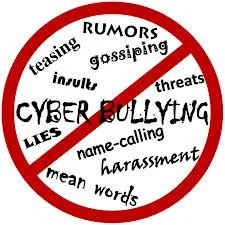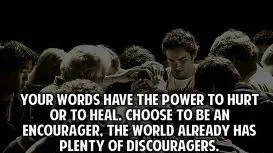by Joanie Butman
My friend sent me a note last week that aptly described blogging or any other kind of public speaking (whether you are talking to one person or a thousand) as a “Poof!” experience. Once the words are delivered – “Poof!” – they take on a life of their own, traveling to people and destinations you never imagined. Much to my dismay, sometimes they even make it back to me in a mutated form. I will never publish another article without thinking “Poof!” as I press the send key and hope for the best.
She explained that the good news is that the "poof” is like those white, puffy, wind-borne seeds which spread mysteriously around the land - as you never know whom God will touch with your story - even years from now.
Her thought was confirmed during the course of the week as I learned of a number of the most unlikely readers who through a bizarre series of circumstances somehow got a copy of the piece she was specifically referring to and the different messages they took away from the same essay.
More importantly, her comments made me reflect on the importance of choosing what kind of “poof” we project into the world. The significance of that choice was further emphasized by the vitriol I witnessed being carelessly hurled into cyberspace over the past couple of weeks via our on-line town crier. Not surprisingly, the most vicious comments were anonymous, which I have always considered cowardly. A good rule of thumb I tried to teach my children is that if you are afraid to assign your name to something, you probably shouldn’t be saying it. You might think I’m discussing teenagers engaged in cyberbullying, but these were adults who definitely should know better.
Granted, more than a few of my “Poofs!” have gotten me into trouble – most notably, the time I got my son kicked off a lacrosse team because of an email I thought I sent to my husband but was mistakenly delivered to the coach instead. Oopsy! He didn’t have any problem responding immediately to that one, though he rudely chose to ignore my previous emails requesting scheduling information; which, sadly, I now no longer needed. Referring to him as Coach Pompous Ass was not one of my wisest choice of words despite the fact that I thought I was exercising uncharacteristic restraint. He had no way of knowing, of course, but compared to what I was thinking, the title I bestowed on him was a compliment! Worse was the deliberate follow-up email highlighting how his subsequent behavior toward an innocent 12-yr-old boy confirmed my original assessment. Now you know why I am a Christian. Someone has to save me from myself!
The point is, our choice of words is not to be taken lightly. Each of us holds the power to either encourage or discourage people with our words. That we hold such power within us is a daunting responsibility. Author John Ortberg states, “Every single interaction we have with another person involves not simply exchanging information or performing tasks but also influencing each other’s moods and attitudes. Every time two people make contact, they come away feeling either better and more energized or worse and more depleted.” There’s no neutral.
My friend (who happens to be a master encourager) is so right. You never know how what you say (whether it is in writing or verbally) is going to impact someone else’s life or your own. The “poofs” we sprinkle on others will probably be how we are remembered long after we’re gone. That is what makes the choice to share them with honesty and sincerity so meaningful. Your story might be the very one someone out there is waiting to hear, the one that will help them rewrite their own.





